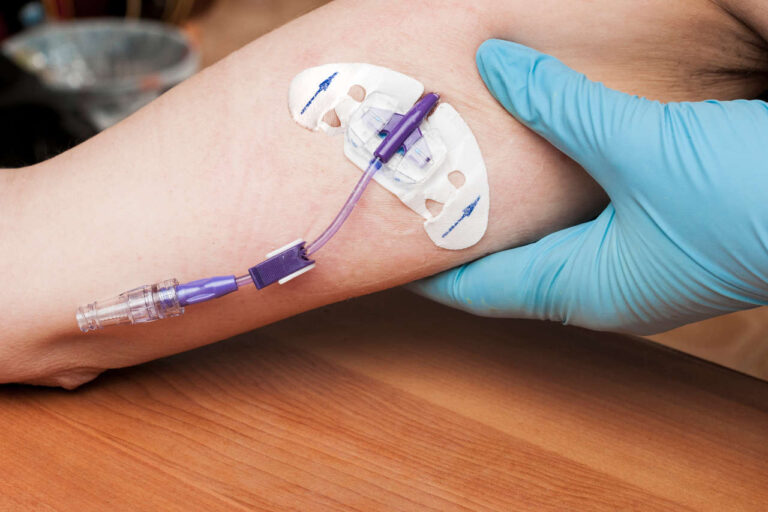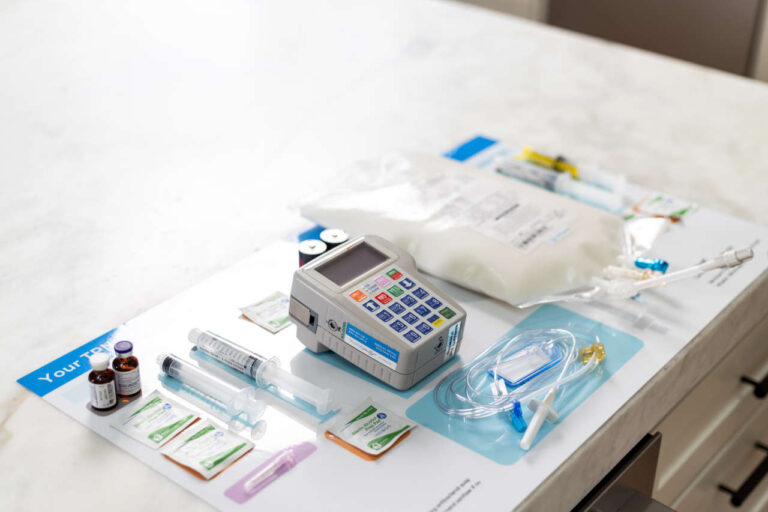
Lipids are more than just the source of energy in TPN (Total Parenteral Nutrition). They also help regulate immunity, inflammation, and liver health.
Your IV Fluids, Always Available
Full inventory, hassle-free accessMost of us probably know lipids (or simply fats) as calorie-dense macronutrients responsible for providing energy to the body.
Intravenous (IV) fat products have the potential for use in several medical conditions and for improving treatment outcomes.
In this article, you will learn about the lesser-known roles of lipids in TPN.
A Quick Overview of TPN and Lipids
TPN (total parenteral nutrition) is an intravenous feeding method. It fulfills all daily nutritional requirements of a person who is unable to absorb nutrients through their digestive tract. For patients on TPN, it is their only source of daily nutrition.
Lipids, also known as intravenous fat emulsions (IVFE), are a necessary component of TPN. The other two are sugar (dextrose) and protein.
The two primary functions of lipids in TPN are to:
- Provide calories
- Prevent fatty acid deficiency
TPN and Lipids: Types of Lipids Used
Soybean oil-based IV fat emulsions have been the primary lipids used in TPNs in the United States for decades. However, newer fat emulsion products with varying concentrations of soybean, olive, safflower, and fish oil are also available.
The following table shows the proportion of oils in different brands.
|
Brand Name of the Product |
Proportion of Oils |
| Intralipid | 100% soybean oil |
| Clinolipid | 80% olive oil, 20% soybean oil |
| Liposyn II 10% | 5% safflower oil, 5% soybean oil |
| Liposyn II 20% | 10% safflower oil, 10% soybean oil |
| ClinOLeic | 80% olive oil, 20% soybean oil |
| SMOFlipid | 30% soybean oil, 30% medium-chain triglycerides (MCT), 25% olive oil, 15% fish oil |
| Omegaven | 10% natural fish oil |
Emerging Roles of Lipids in TPN
The use of lipids in TPN is not only a source of calories and fatty acids. Various types of lipids may also provide added health benefits.
For instance, olive oil-based products can support your immune system and reduce the risk of infections [1]. Additionally, they can reduce oxidation damage to DNA cells without affecting your blood lipid levels.
According to Fresenius Kabi AG (the maker of SMOFlipid and Omegaven), their olive oil-based products can [2]:
- Help promote liver cell function
- Preserve immune response
- Prevent antioxidant depletion
- Reduce the length of hospital stay
Olive oil has powerful antioxidant properties, which is likely the reason for improved liver health. Animal studies support this hypothesis [3]. However, large human studies are still lacking.
In a 2023 study, researchers at the Duke University Medical Center compared children who received soybean oil products with those who received soybean oil/MCT/olive/fish oil lipids.
They found that those receiving the mixed-lipid emulsion had [4]:
- Significantly lower hospital length of stay
- Lower risk of infection-related complications
- No additional risk of liver disorder
Get Financial Assistance for TPN
Switching to Mixed-Lipid Emulsions: Is It the Time?
In a 2020 review, a team of multinational researchers concluded that changing the proportions of different lipids might help achieve a specific clinical benefit [5].
They further added that using only one type of product for all conditions might increase the risk of high blood fat and sugar levels.
Your doctor and pharmacist will review your medical history and nutritional needs to determine which lipids are most appropriate for you.
REFERENCES:
- Cai, Wei et al. “Biological and Clinical Aspects of an Olive Oil-Based Lipid Emulsion-A Review.” Nutrients vol. 10,6 776. 15 Jun. 2018, doi:10.3390/nu10060776
- SMOFlipid – Fresenius Kabi India. www.fresenius-kabi.com/in/products/smoflipid.
- Ok, Engin et al. “Use of olive oil based emulsions as an alternative to soybean oil based emulsions in total parenteral nutrition and their effects on liver regeneration following hepatic resection in rats.” Annals of nutrition & metabolism vol. 47,5 (2003): 221-7. doi:10.1159/000070489
- Haines, Krista L et al. “Change to Mixed-Lipid Emulsion From Soybean Oil-Based Lipid Emulsion in Pediatric Patients.” JAMA network open vol. 6,9 e2332389. 5 Sep. 2023, doi:10.1001/jamanetworkopen.2023.32389
- Sadu Singh, Birinder Kaur et al. “Composition and Functionality of Lipid Emulsions in Parenteral Nutrition: Examining Evidence in Clinical Applications.” Frontiers in pharmacology vol. 11 506. 29 Apr. 2020, doi:10.3389/fphar.2020.00506













